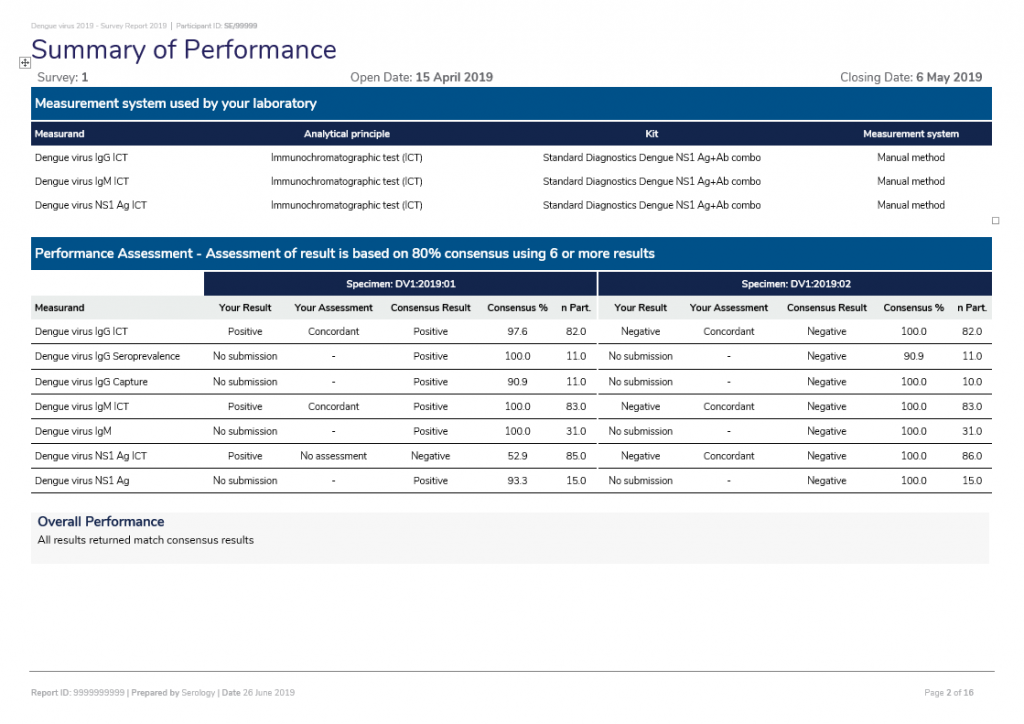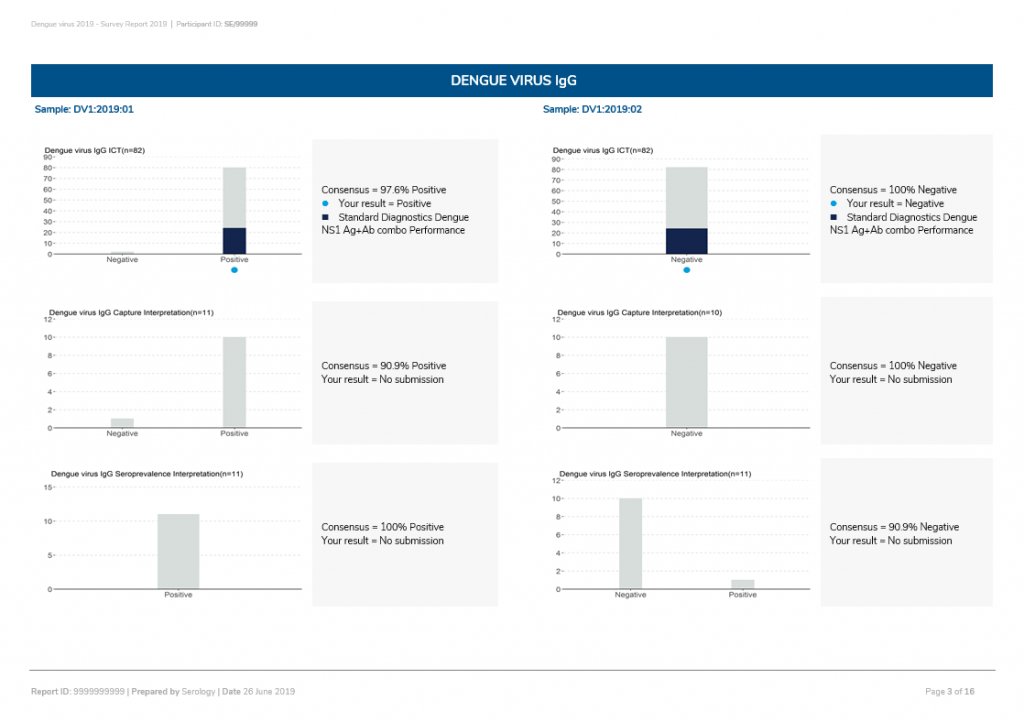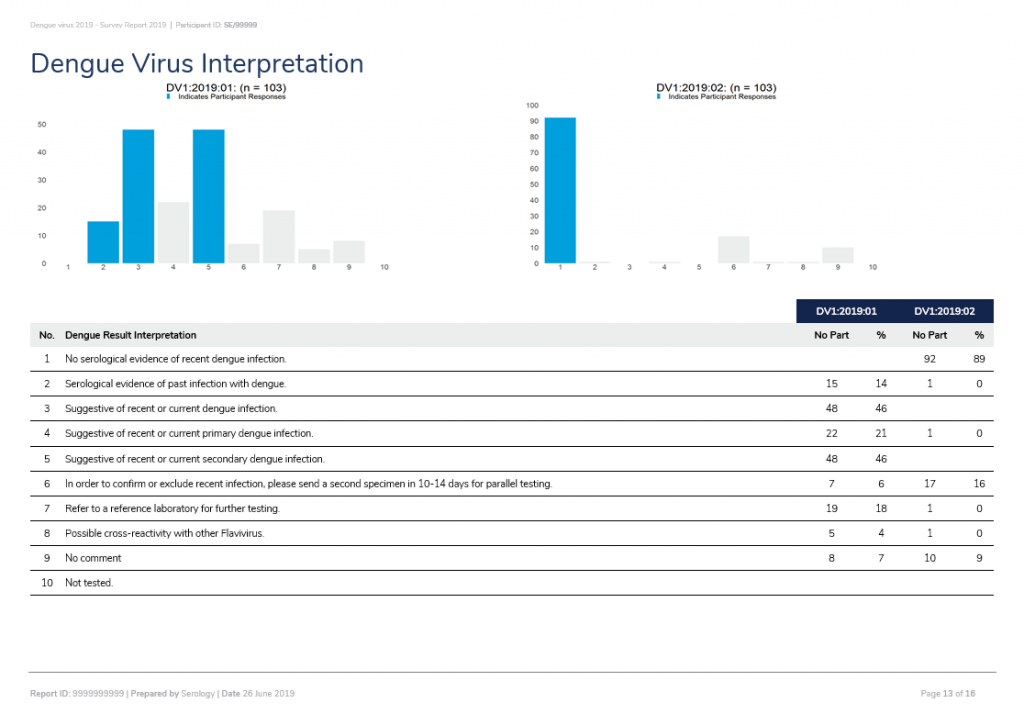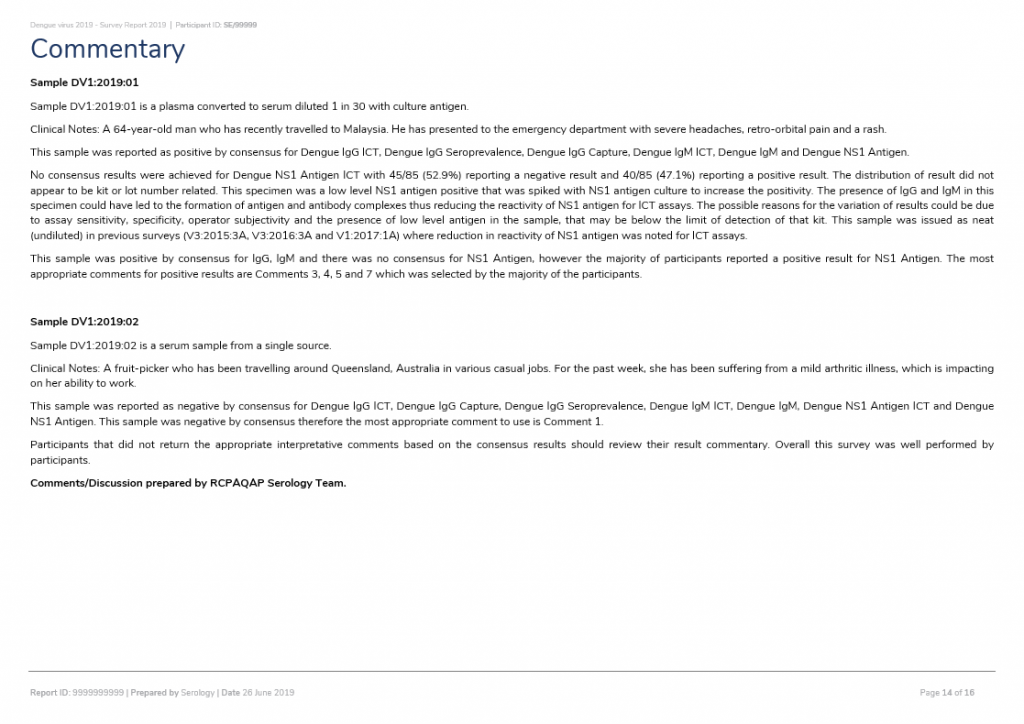Report Format – Serology Programs
The RCPAQAP Serology team has updated the report format issued to participants enrolled in the Dengue Virus Program. The new report format follows a standard structure that will be adopted by other programs offered by the RCPAQAP. This single report replaces the previous generic and survey reports.
The structure of the new reports is as follows:
Summary of Performance
- Measurement system used by your laboratory: This lists the measurement system selected by you through the result entry form in the myQAP portal.
- Performance assessment: Provides the assessment of your results against a consensus of 80% of all participants returning the same qualitative value for a measurand. Only qualitative tests are listed for assessment. Quantitative results are currently not assessed, although statistical analysis will be provided for user groups of 6 or more data points.
- Consensus result: The consensus result represents the qualitative result returned by the majority of laboratories for a sample.
- Overall performance: Provided that the consensus is ≥ 80% – the overall performance will list comments related to your performance.
Result Review
- Result histograms: Includes all qualitative results returned for each sample. The report lists the results from all participants using your method, displaying the results returned from your laboratory and highlights the consensus result and the percent consensus achieved within your method group.
- Kit performance:Provides a breakdown of the results returned from participants based on the ‘kits’ used to perform the assigned tests. The first table will provide the number of participants returning a qualitative result along with the method consensus. The second table provides statistical analysis of the quantitative values or the blots detected per kit or a histogram if only titres were reported for a measurand.
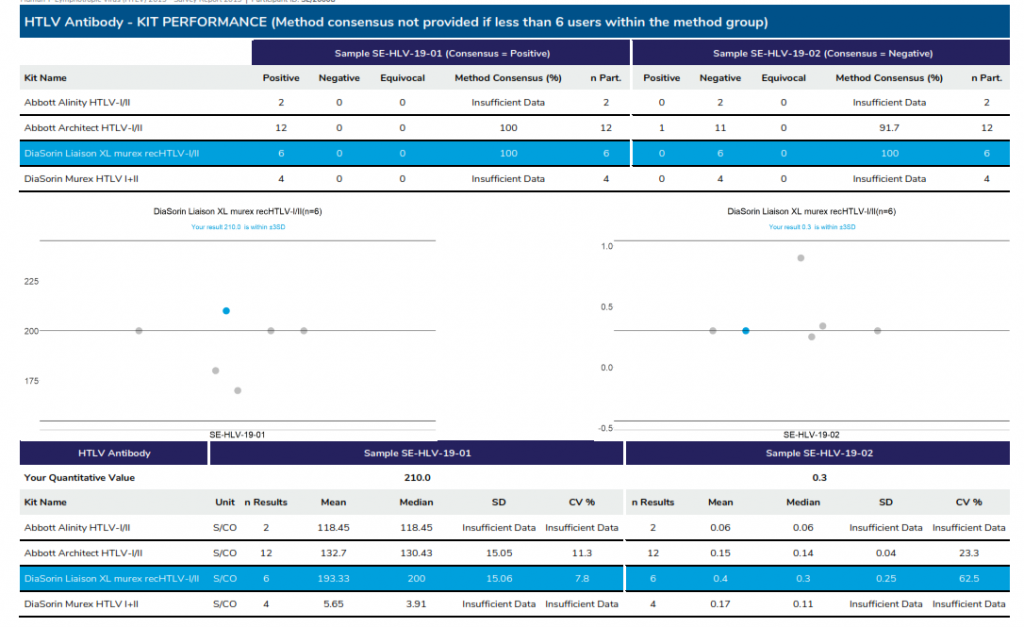
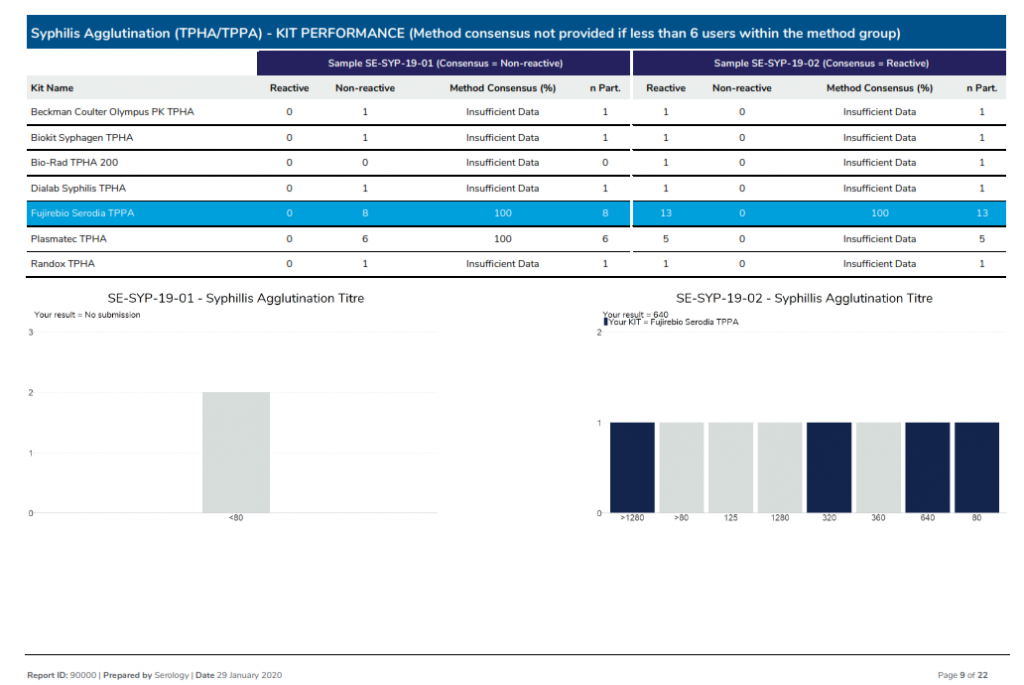
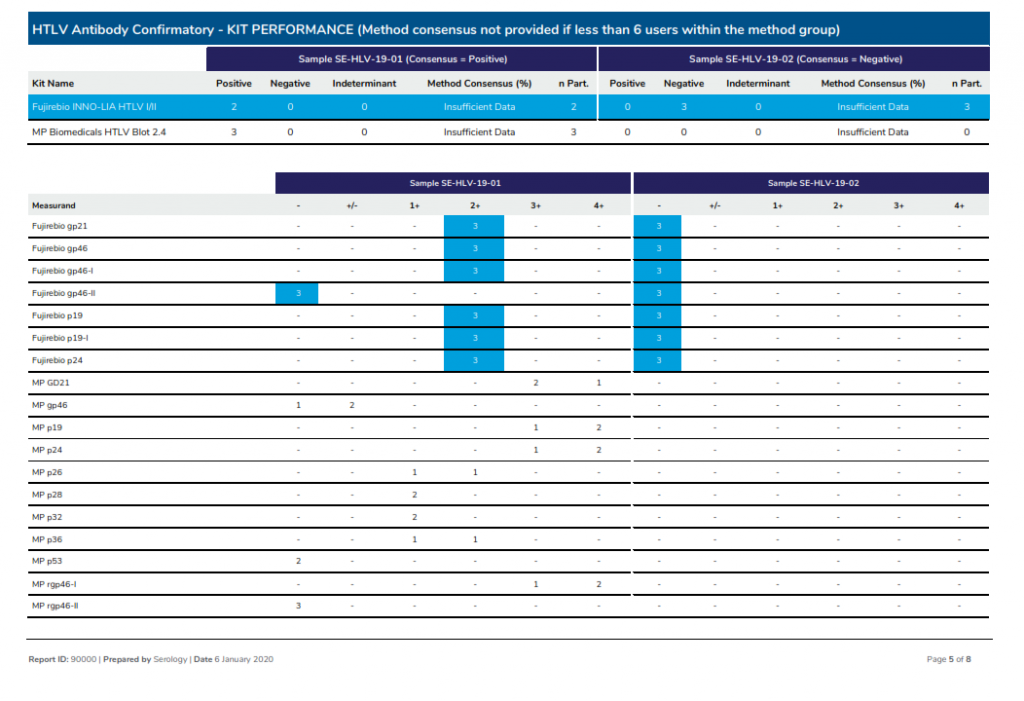
Quantitative results are illustrated in a scatter-plot when there are 6 or more users in your specific method group (participants using the same kit). Exclusion of outlier results from your method group may result in <6 valid values from your method group. Results highlighted in blue indicate the method used within your laboratory.
Interpretation
- Provides a breakdown of all the responses received for the Dengue virus interpretation. This provides the total number of laboratories that returned each response and the percentage of the total, for that response. The histogram bars highlighted in blue represent your labs returned response.
Commentary
- Provides comments based on participant performance. These are prepared by the Serology discipline after reviewing all participant data.
Cumulative performance
- Provides the assessment of performance for each qualitative test performed by the laboratory for the past 4 surveys. This will display past surveys as more reports are issued.
Z-scores
- The z-score is a new addition included in the reports. This is an integer that represents the number of standard deviations away from the mean result. This has been included as a guide, in order that participants can monitor their performance against their peer group for the quantitative tests returned.
New Assessment Criteria
- Concordant, Discordant and Not Assessed replace current scoring
- Where ≥ 6 results achieve 80% consensus, the sample will be assessed
- When < 6 results are received, the sample will be reported as “Not assessed”
- Provided that the consensus result is ≥ 80% – A laboratory obtaining the same result as consensus = Concordant
- Provided that the consensus result is ≥ 80% – A laboratory that does not return the consensus results = Discordant
- Quantitative Data is not assessed but statistical analysis (Median, SD, CV) is provided for ≥ 6 data points per user group
For any queries regarding the new report format, contact the RCPAQAP by logging a request through the myQAP portal.
Can't find what you're looking for?


